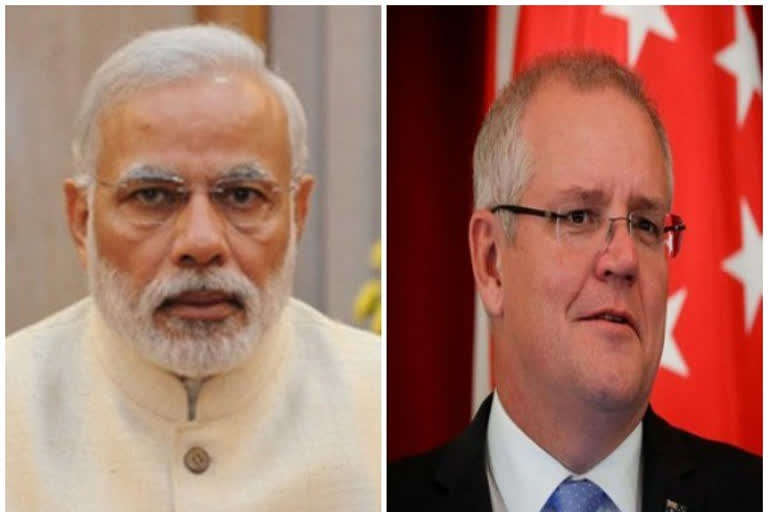Canberra: The deterioration in both India and Australia's relations with China has inevitably brought the two countries together and as Beijing has threatened to dial back its economic engagement, Canberra have looked to New Delhi as an attractive alternative, said Australia-based professor Salvatore Babones.
India on Monday announced Australia's participation in the upcoming Malabar exercise along with the US and Japan, effectively making it the first military-level engagement between the four-member nation grouping -- the Quad.
In an opinion piece, Salvatore Babones, an associate professor at the University of Sydney, writes that for years concerns over Chinese displeasure prevented Australia's participation in the Malabar exercises, alternately due to Indian or Australian skittishness about offending China. With both countries facing security threats from China, defence co-operation is a great place to start, she added.
Read:| Research proposals invited for COVID-19 bilateral collaboration between India and Australia
"The deterioration in both India and Australia's relations with China has inevitably brought the two countries together. There's certainly no problem with the trade relationship. Australia enjoys a massive trade surplus with India, mainly driven by minerals exports, but (until the coronavirus hit) increasingly by education, too," she writes.
"As China has threatened to dial back its economic engagement with Australia, government, universities and businesses have looked to India as an attractive alternative," she added.
Australia and India have signed an agreement on logistical access to each other's military facilities as part of a broader maritime partnership negotiated at last month's virtual summit between Scott Morrison and Indian Prime Minister Narendra Modi.
Chinese and Australian relations have deteriorated after Canberra called in April for an investigation into the origins of the coronavirus without first consulting Beijing.
Beijing has since imposed a large anti-dumping duty on Australian barley, banned beef exports from five abattoirs and instigated anti-dumping and subsidy investigations into cheap Australian wine in China.
Meanwhile, tensions between India and China have escalated as troops of both countries are engaged in a standoff along Line of Actual Control (LAC).
Read:| US, Australia, India, Japan discuss China's growing power
The professor said minority Muslims in Hindu-majority India have greater freedoms and civil rights than they do in Muslim-majority Pakistan and Bangladesh.
In its South Asian neighbourhood, Pakistan struggles to overcome military rule, Bangladesh is essentially a one-party state and Sri Lanka still hasn't come to terms with the legacy of a brutal civil war. All were once British colonies, but only India seems to have inherited Britain's tradition of the rule of law.
Farther afield, the situation is even worse. The less said about neighbours and near-neighbours like Afghanistan, Bhutan, Iran, Myanmar, Nepal, and (of course) China, the better. The Economist gives India the highest democracy rating of any country on the Eurasian landmass, which stretches from South Korea to Greece.
ANI report



